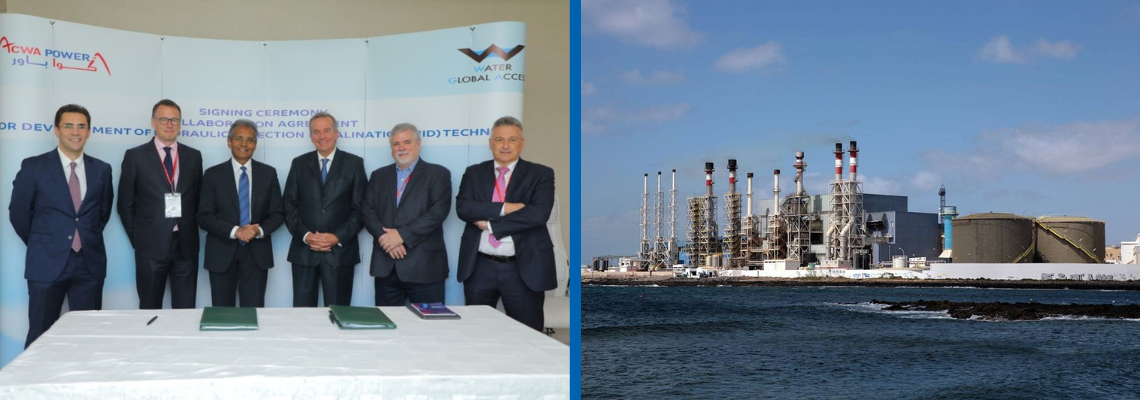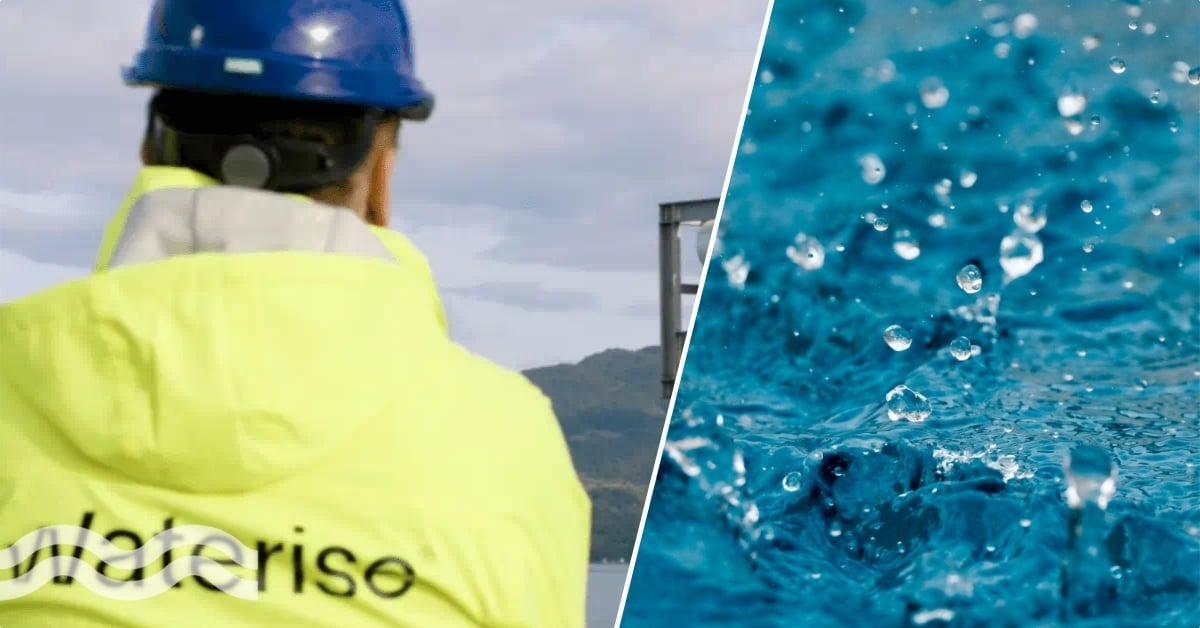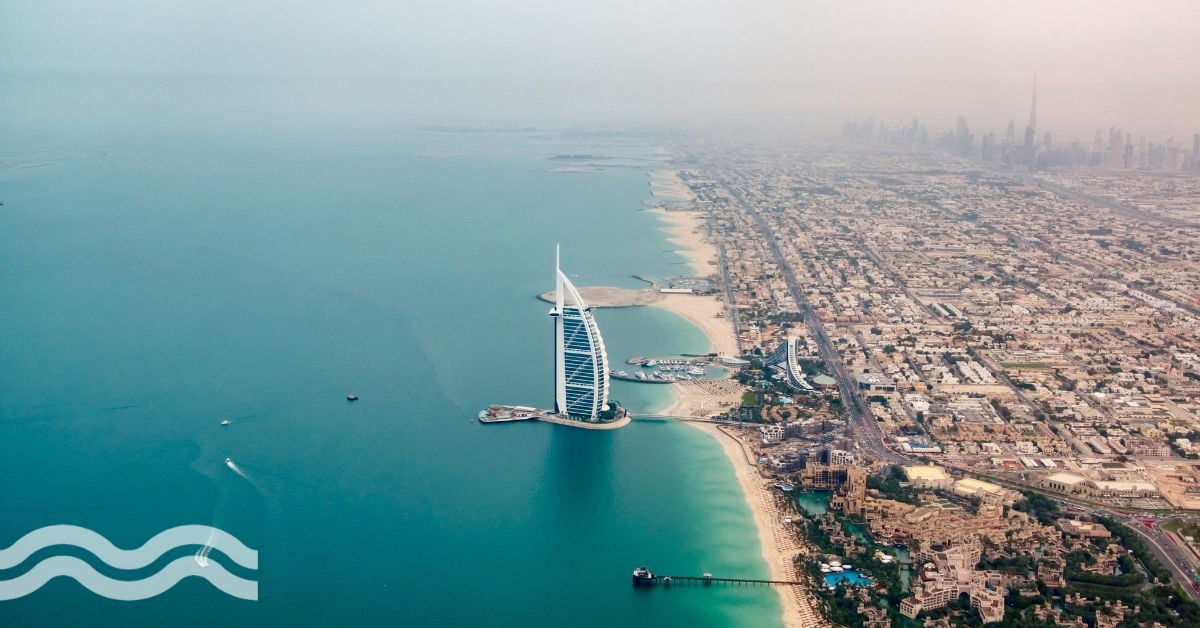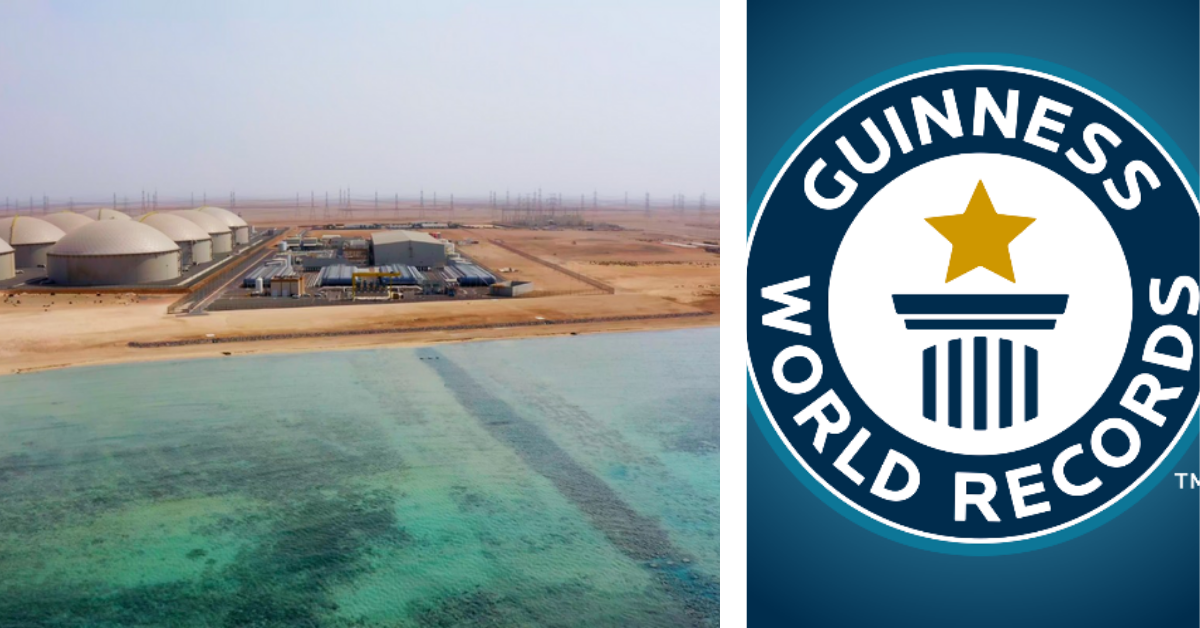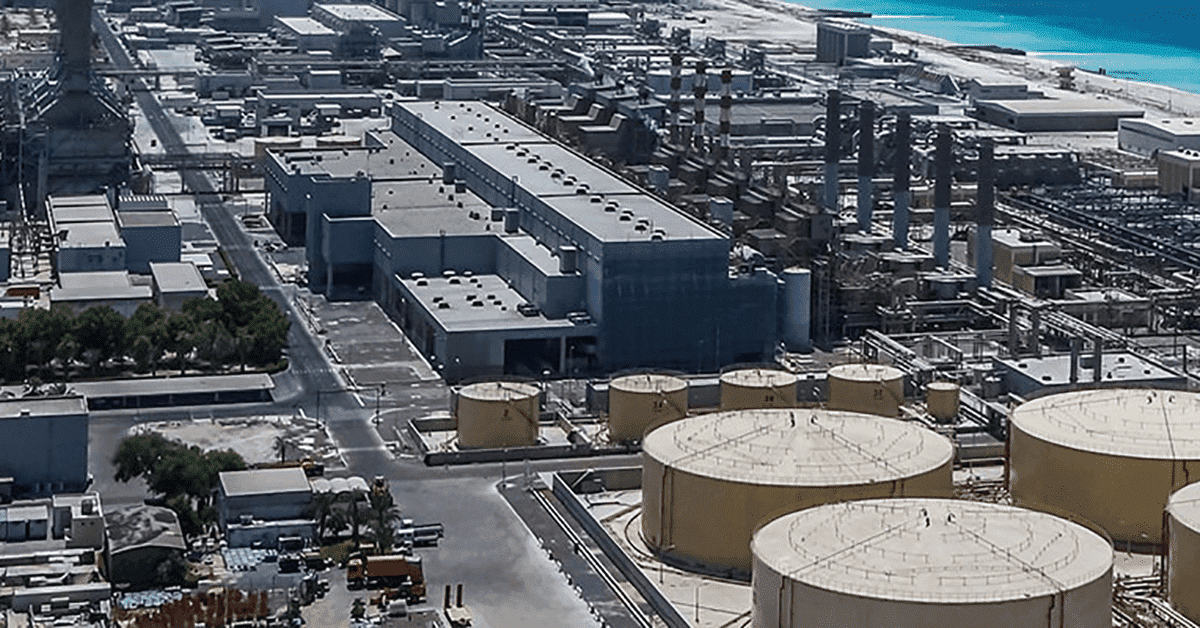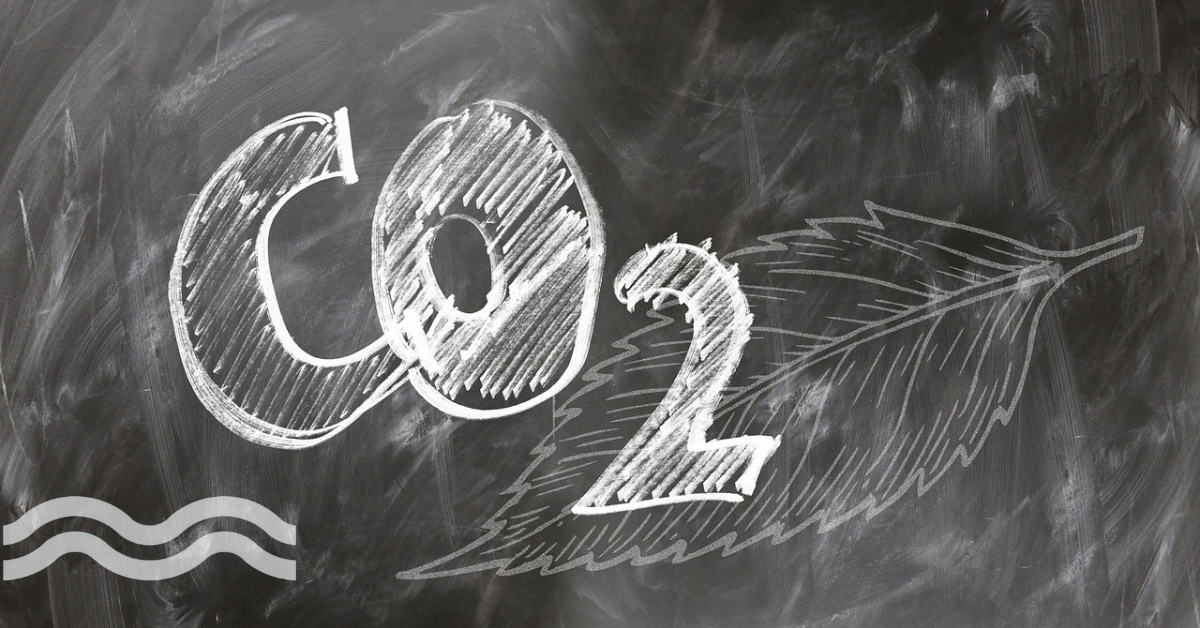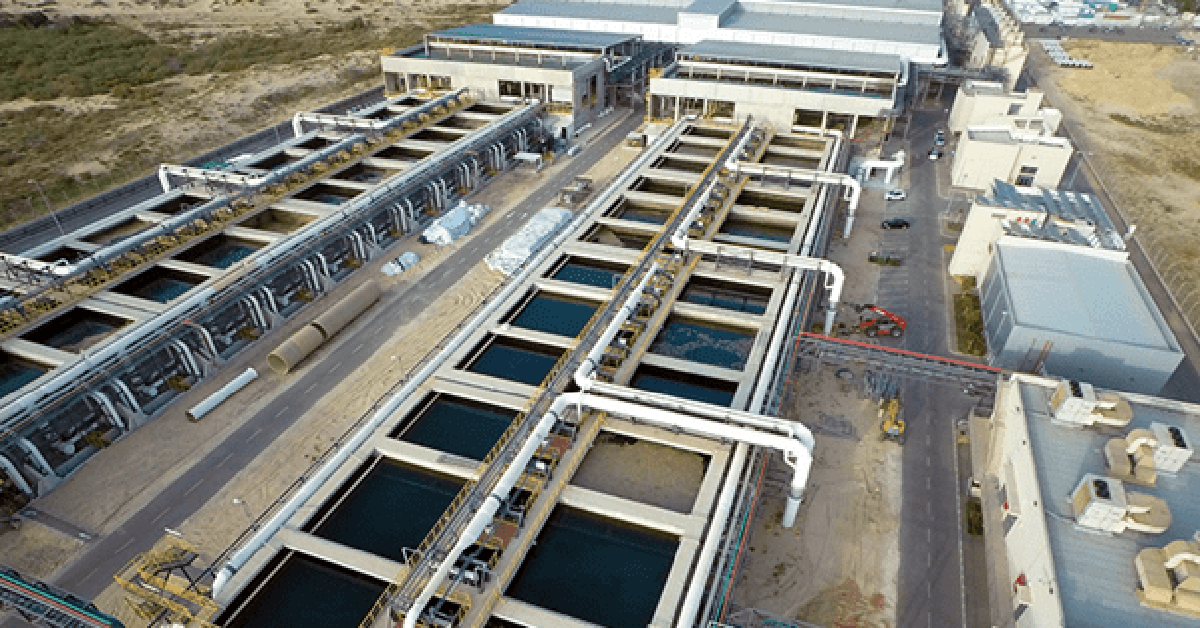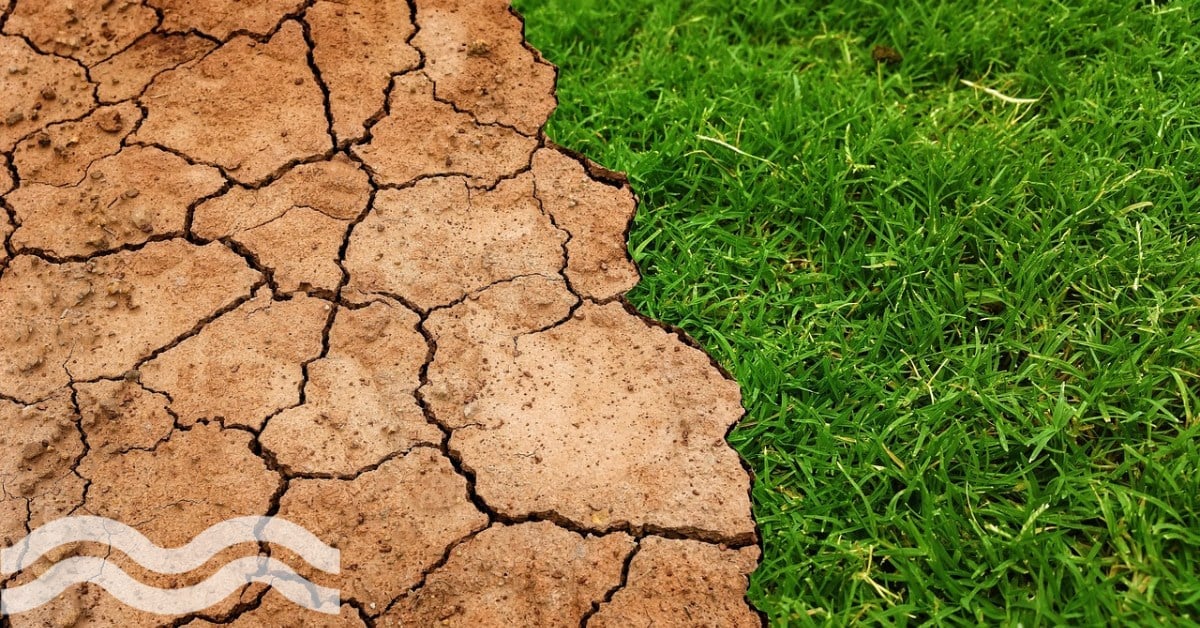Hydraulic injection desalination gains pace
Saudi Arabian company ACWA Power has signed an industrial development agreement with research firm Water Global Access to develop and scale Hydraulic Injection Desalination (HID) technology.
Exploring alternatives to reverse osmosis
A new thermal desalination technology is being developed following an agreement in Saudi Arabia.
ACWA Power, a Saudi Arabian developer of desalination and green hydrogen plants, has signed an industrial development agreement with Water Global Access (WGA), a research and technology development firm, to develop Hydraulic Injection Desalination (HID) technology at scale.
HID technology in plants could use a third less energy than most modern seawater reverse osmosis (RO) desalination plants and ten times less than traditional thermal desalination facilities, the organisations said.
The agreement was signed at this year's Future of Desalination International Conference in Riyadh, Saudi Arabia.
Commenting on the announcement, Christopher Gasson from Global Water Intelligence, said: “It is significant because ACWA Power is the largest private developer of desal plants in the world, and it clearly believes that there may yet be alternatives to reverse osmosis.”
“The potential emanating from water production utilising cost-effective, low carbon-intensive technologies is truly exponential.”
The collaboration with kickstart with the implementation of a pilot project that includes HID in the Gulf Cooperation Council (GCC) region.
This follows ACWA research that demonstrated that the technology has the potential to break the 2.0 kilowatt per hour (kW-hr) barrier of energy consumption to produce one cubic metre of water from seawater.
"With continued industrialisation and demographic growth, water consumption across the world continues to rise at a rapid rate requiring urgent solutions," said Paddy Padmanathan, CEO and vice chairman of ACWA Power.
"The potential emanating from water production utilising cost-effective, low carbon-intensive technologies is truly exponential and we are proud to pilot the ground-breaking HID technology," he added.
HID’s results suggest a change against the energy-efficient commercial seawater reverse osmosis (SWRO) desalination facilities.
These systems consume on average 3 kWh/m3 and more than 10 per cent improvement compared to the current Guinness book record for an SWRO pilot plant of 2.271 kWh to produce a cubic meter of water.
A budding friendship
ACWA Power and WGA first partnered earlier in the year to develop green water desalination technology, which saw ACWA take interest in WGA's HID technology.
“Technical readiness tests confirm the capacity of HID to break the 2kWh/m3 seawater desalination threshold.”
It comes as ACWA Power looks to move away from the chemical treatment stage that HID bypasses, potentially requiring less energy compared to existing desalination technologies.
"Technical readiness tests confirm the capacity of HID to break the 2 kWh/m3 seawater desalination threshold, opening a new paradigm in the industry's efficiency levels," said Eusebi Nomen, CEO of the WGA.
"WGA's industrial development roadmap objective aims to complete advanced technical readiness levels by the end of 2023 and commercialise HID by 2024."
ACWA Power currently operates 16 water desalination plants, out of which 50 per cent are located in Saudi Arabia, including the country’s largest independent water project and one of the world's largest SWRO desalination plants.
Saudi's big desalination dependency
While 97 per cent of the population has access to potable water, Saudi Arabia is still classified as one of the most water-scarce nations on the planet.
The absolute water scarcity level is 500 cubic meters per capita, per year and Saudi Arabia has only 89.5 cubic meters per capita, per year.
On top of this, more than half the water used in the country exceeds sustainable levels and 82 per cent of wastewater is not purified for reuse.
Saudi Arabia, like a lot of countries in the Middle East and Northern Africa, is looking to invest in and improve existing desalination plants. In cities such as Jeddah, desalination supplies 98 per cent of all the water consumed.
In 2019, the country launched a national programme called Qatrah - Arabic for droplets - to cut water consumption by about 43 per cent, to 150 litres per capita, per day by 2030.
Related content
- Partnership to by-pass chemical treatment for 'greener' desalination
- Egypt's renewable powered desalination plans progress ahead of COP27
- Subsea desalination moves forward following waterise partnership
Share your water technology stories with us
Do you have an innovation, research results or an other interesting topic you would like to share with the international water technology industry? The Aquatech website and social media channels are a great platform to showcase your stories!
Please contact our Sr Brand Marketing Manager Annelie Koomen.
Are you an Aquatech exhibitor?
Make sure you add your latest press releases to your Company Profile in the Exhibitor Portal for free exposure.
We promise never to send you spam and you can unsubscribe at any time!
